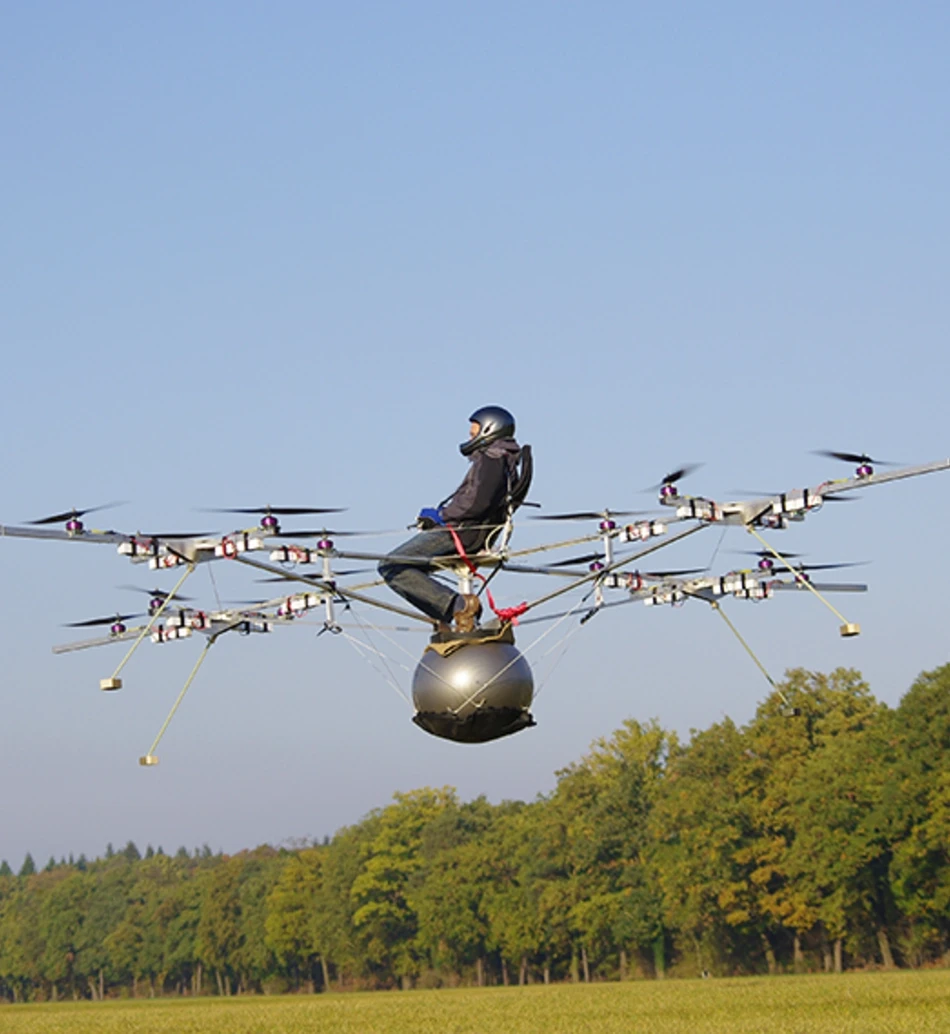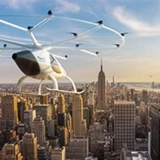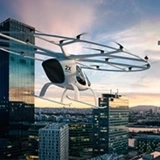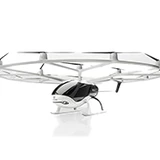From a small drone to flying taxis

In 2010, Stephan Wolf, an industrial automation software development specialist, bought a quadcopter for his son.
It was one of the first ones that even a child could easily control. Impressed by its manoeuvrability, stability and easy handling, Wolf immediately started dreaming: what if it was scaled up to transport people?
After some research and calculations, he developed a project. He contacted Alex Zosel, a childhood friend, who became an entrepreneur. A passionate hobby pilot and
paragliding teacher himself, he didn’t hesitate for a second. The two men and Thomas Senkel founded e-Volo in 2011. The startup, located near Karlsruhe, in Germany, subsequently became Volocopter.
The VC1 proved in October 2011 that an electric multicopter was capable of taking off vertically with a passenger. Then, the first prototype, the VC200,was suitable for carrying 2 people. It made its first manned flight – with Zosel himself as the pilot – in March 2016. The VC200 had been financed through an instantly successful online crowdfunding (500,000 euros in 2 hours and 35 minutes!).
This model also marked a major milestone: it got a license to fly all over the country from the German authorities. The Volocopter 2X, first displayed in 2017, has since been built into a miniseries for extensive test flights in manned, unmanned (which includes remote-controlled), and automated (following a preset route with no human interference) configurations.
In only 8 years, the seemingly absurd idea of a “drone for humans” has become a certified aircraft. In the meantime, eVTOL aircraft (electric vertical take-off and landing) have generated an industrial race (see page 08). Volocopter, a visionary? In any case, that’s how the World Economic Forum seems to consider the startup, as they
were among the winners of the 2019 “Technology Pioneer” award which recognises companies that are “poised to have a significant impact on business and society”.
Many investors, large and small, have contributed so far to financing Volocopter, including Daimler and Intel. Lukasz Gadowski, a German serial entrepreneur and founder of Circ (formerly known as Flash) micro mobility electric scooter, is one of the personalities who have been convinced. Last September, Geely, the Chinese Group owner of Volvo and Lotus cars, as well as Terrafugia (hybrid cars/aircraft) headed the round of private funding amounting to 50 million euros for the C Series.
This summer, Volocopter presented its next model, the VoloCity (for all the details, see page 14). Slightly larger and twice as heavy and powerful as the 2X, this multicopter is not a prototype, but rather the first to be marketed.
The startup, with a current staff of about 150, aims at becoming a mobility provider. It has been working for several years already with Dubai and Singapore, who have requested a feasibility study on such services in their skies.
At the end of October, Volocopter conducted a public proof of concept flight in Singapore. It also displayed a vertiport prototype there, not for launching the eVTOLs (the authorisations are missing), but for testing and improving various services (reception, booking, check-in). This proof of concept on a one-to-one scale is another step towards the imminent launching of a brand new type of urban mobility.


